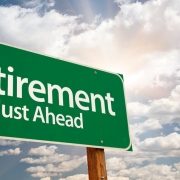Key Takeaways
- Achieving financial stability for retirement requires a thorough review of savings, investments, and debt management to ensure you can sustain your desired lifestyle without financial stress.
- Regular health assessments and planning for future medical needs are crucial in ensuring that health issues do not hinder the quality of life during retirement.
- Clearly defining personal interests, hobbies, and travel plans helps create a fulfilling retirement experience by allowing you to enjoy activities you love while staying within budget constraints.
Retirement is a significant milestone, marking the transition from years of dedicated work to enjoying a more leisurely and fulfilling chapter of life. But how do you know when you’re truly ready to take this step? Deciding on retirement isn’t just about reaching a certain age or hitting financial targets; it’s also about emotional readiness, lifestyle planning, and personal goals.
This guide will help you explore key indicators such as financial stability, health considerations, personal aspirations, and social connections that signal your readiness for retirement. By examining these factors comprehensively, you’ll be better equipped to determine if now is the right time for you to embrace this new phase with confidence and excitement.
Financial Stability
Achieving financial stability is the most critical factor in determining your readiness for retirement. This involves a thorough evaluation of various financial aspects to ensure you can maintain your desired lifestyle without the worry of running out of funds.
- Savings and Investments: Review all your savings accounts, including 401(k)s, IRAs, Roth IRAs, and any other investment portfolios. Ensure these accounts are well-diversified to mitigate risks while maximizing returns. It’s also essential to calculate how long these funds will last based on current withdrawal rates.
- Retirement Accounts: Understand the rules governing withdrawals from different types of retirement accounts, such as required minimum distributions (RMDs) for traditional IRAs and 401(k)s starting at age 73.
- Emergency Fund: Maintain an emergency fund that covers three to six months’ worth of living expenses to cushion against unexpected costs or market downturns.
- Pension Plans: If you have access to pension plans through previous employers or government jobs, get detailed information about payout options—whether lump sum or monthly payments—and how they fit into your overall income strategy.
- Social Security Benefits: Calculate when you should start claiming Social Security benefits since this decision significantly impacts your monthly benefit amount over time.
- Inflation Impact: Consider inflation’s impact on purchasing power; plan accordingly by investing in assets that are likely to outperform inflation rates over time.
It’s best to consider consulting a financial advisor to evaluate your retirement readiness from a financial perspective. Luckily, Horizons Wealth Management can help answer the right questions.
Debt Management
Effectively managing debt is crucial for a stress-free retirement. Here are key considerations to help you assess and manage your debt before retiring:
- Current Debt Inventory: List all existing debts, including mortgages, car loans, credit card balances, personal loans, and student loans.
- Mortgage Status: Evaluate how many years remain on your mortgage and consider paying it off early or refinancing for better terms.
- Credit Card Balances: Aim to pay off high-interest credit card debt quickly to avoid costly interest charges that could burden limited retirement income.
- Car Loans: Pay off vehicle-related debts ahead of time, reducing monthly expenses.
- Consolidation Options: Explore consolidating multiple high-interest rate accounts under one lower-rate agreement, reducing overall payment obligations and freeing up cash flow opportunities elsewhere within budget constraints imposed otherwise.
By systematically addressing each aspect—mortgage status, credit cards, car loans, consolidation options, budget adjustments, and seeking professional advice—you’ll enter retirement free from financial burdens. This will allow you to fully enjoy your newfound freedoms and pursue your passions with peace of mind and contentment.
Health Status
Assessing your health status is a critical factor in determining your readiness for retirement. Good health not only impacts your quality of life but also influences financial planning and lifestyle choices during retirement. Here are key considerations to help you evaluate and plan around your health as you approach this significant milestone:
- Current Health Assessment: Begin with a comprehensive evaluation of your current physical and mental health. Regular check-ups, screenings, and consultations with healthcare providers can provide insights into any existing conditions that might affect your retirement plans.
- Chronic Conditions: If managing chronic illnesses like diabetes, hypertension, or arthritis, ensure they’re under control through consistent medical treatment and monitoring adherence to prescribed regimens.
- Future Healthcare Needs: Consider potential future medical needs and anticipate the costs associated with ongoing treatments, medications, therapies, interventions, surgeries, and possible rehabilitation. Be prepared for unforeseen emergencies that could arise unexpectedly and significantly impact your overall well-being. Each case should be individually assessed to tailor a plan specific to your unique personal context, ensuring you are well-prepared both now and moving forward.
- Long-Term Care Planning: Explore options for extended-care scenarios that may require assistance with daily living activities. Consider home-based services, assisted living facilities, and nursing homes. Evaluate the coverage provided by insurance policies specifically designed for such eventualities, including Medicaid, Medicare, private insurers, supplemental plans, and hybrid plans that combine various types of protections. This approach helps maximize benefits while minimizing gaps in coverage and reducing exposure to risks.
By addressing these areas comprehensively, you can ensure a well-prepared transition into retirement with minimized risks and maximized benefits.
Lifestyle Goals
When considering if you’re ready to retire, defining and planning for your lifestyle goals is crucial. Retirement offers the opportunity to pursue passions, hobbies, and activities that you may not have had time for during your working years. Here are key aspects to consider when evaluating your lifestyle goals:
- Personal Interests and Hobbies: Reflect on what activities bring you joy and fulfillment. Whether it’s traveling, gardening, painting, golfing, or volunteering—ensure these interests can be sustained financially and logistically in retirement.
- Travel Plans: If exploring new places ranks high among your priorities, map out the destinations you envision visiting. Estimate the costs involved for the duration of stays, transportation, accommodation, food, and other related expenses. Plan accordingly to fit within your budget constraints comfortably without overextending resources unnecessarily or unwisely.
Thoroughly defining and planning for your lifestyle goals is essential when determining if you’re ready to retire. By identifying personal interests and hobbies that bring you joy and carefully mapping out travel plans while considering financial sustainability, you can create a fulfilling retirement experience. Proper preparation ensures that your post-work years are spent enjoying the activities you love without the stress of overextending resources.
Bottom Line
In conclusion, preparing for retirement involves more than just financial planning; it encompasses evaluating your health status, managing debt effectively, and defining clear lifestyle goals. By thoroughly assessing each of these areas—ensuring financial stability through diverse savings and investments, maintaining good health with proactive medical care, addressing outstanding debts to reduce stressors, and planning activities that bring joy—you can confidently transition into this new chapter of life. A comprehensive approach allows you to embrace retirement fully equipped to enjoy newfound freedoms while pursuing passions with peace of mind and contentment. At Horizons Wealth Management, we can help you reach your financial goals through our various services, such as wealth management and portfolio management. Let us help you kickstart your financial future today.





